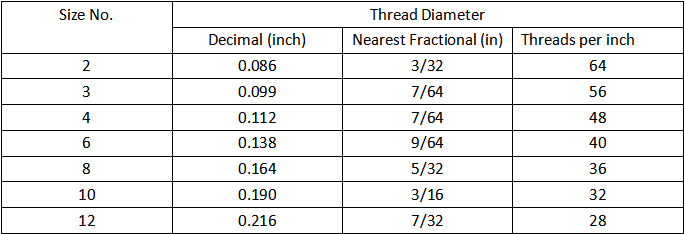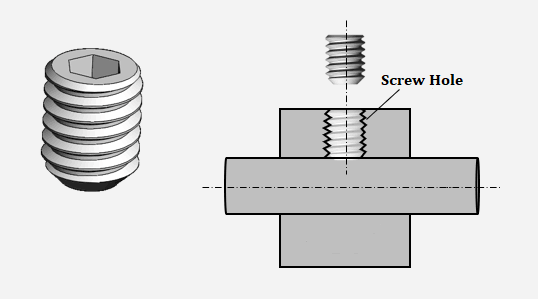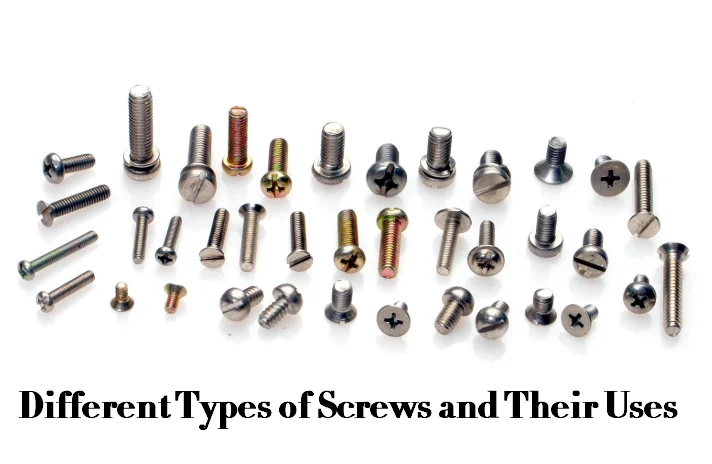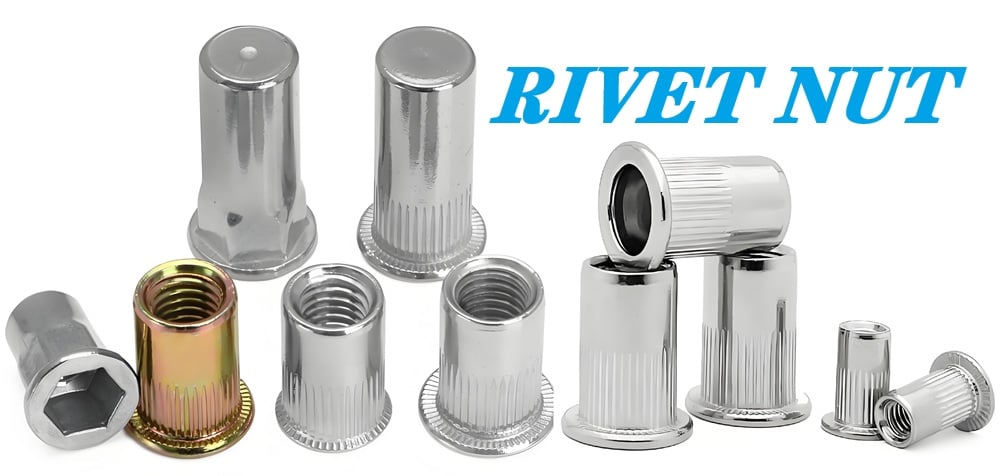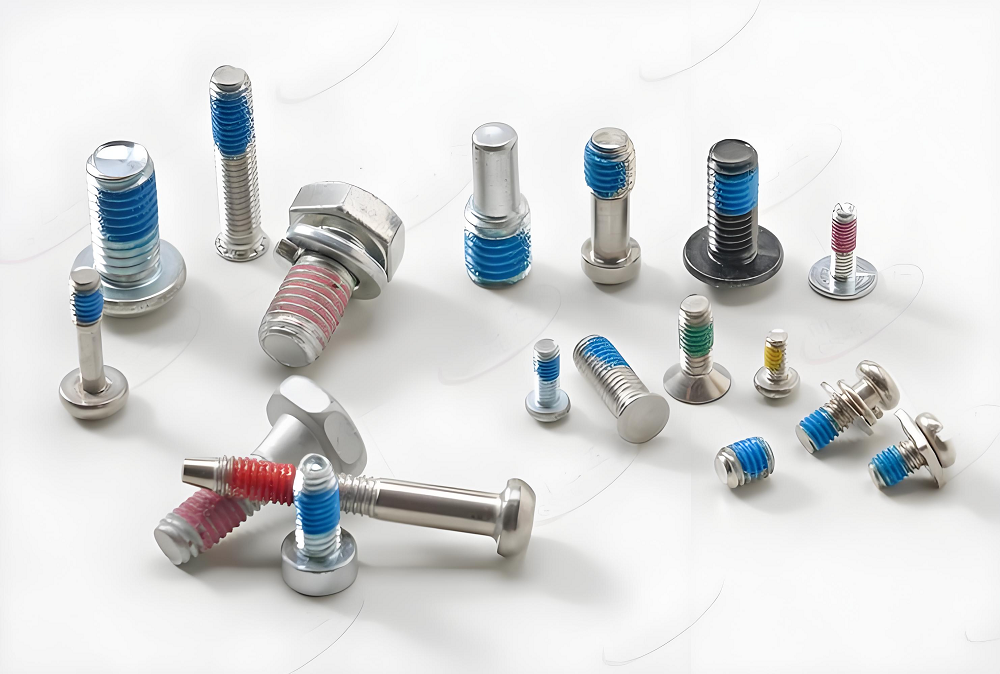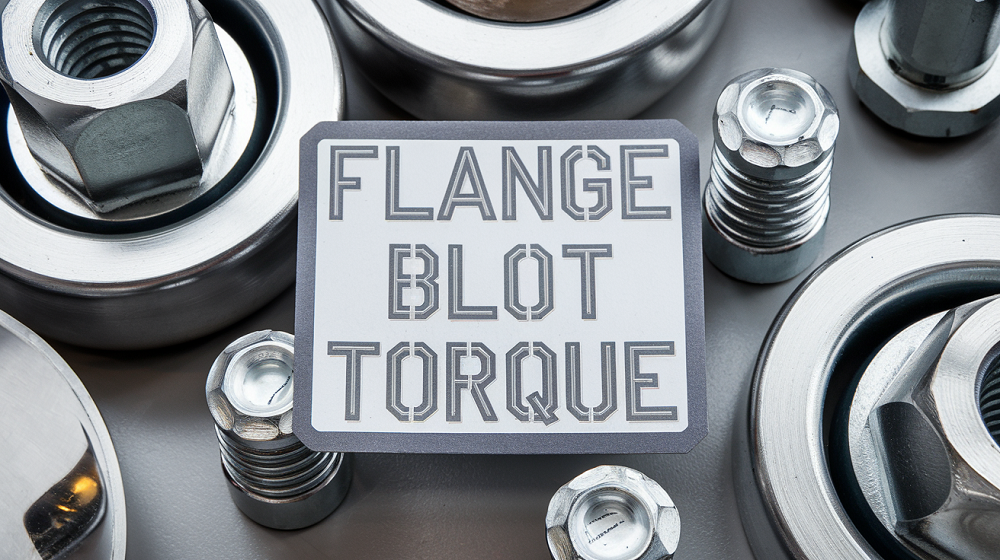Machine screws are designed to join parts together through threaded holes. The small size and unique threading design of machine screws make it different from other types of screws and have an advantage in lots of applications. Here we’ll talk about what is a machine screw and how does the thread work, check out the US Machine Screw Diameter Chart and Unified National Thread Sizes at our site if you are in need.
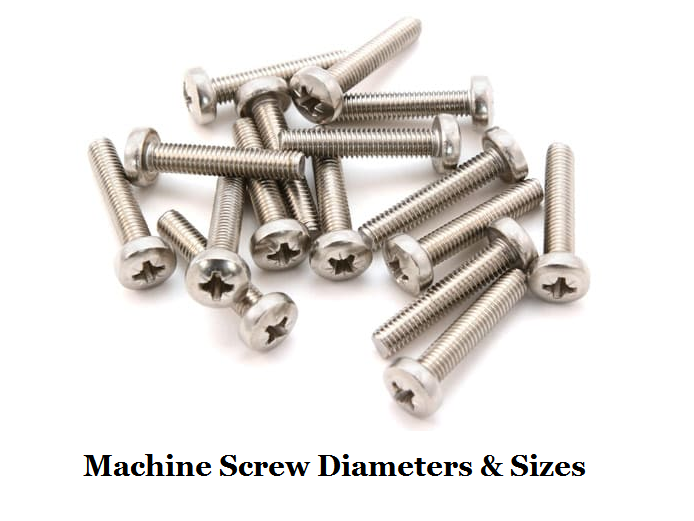
Related Read: Metric & Imperial Bolt Dimensions Chart
What Is a Machine Screw?
A machine screw is a unique type of fastener that is defined as featuring a diameter of up to 0.75 inches by The American Society of Mechanical Engineers (ASME). In addition to the machine screw size, it’s also characterized by its uniform threading from the top to the bottom, which means that the entire length of the threaded section of the screw retain same diameter, while the thread can come in coarse or fine type, like UNC thread and UNF thread. Machine screws are designed to be threaded into uniformly threaded nuts or holes that existed in the parts that are intended to fasten and are commonly used in electronics, tools, appliances, and machinery applications. Even though with distinctive features, machine screws also can be fabricated in various materials, driver head types, sizes, diameters, and configurations.
What Are the Differences Between Machine Screw and Bolt?
Bolts and machine screws have no much difference on their construction and shapes, they generally differ in uses. All machine screws can be used as bolts but not all bolts can be machine screws.
1. Machine screw sizes are generally considered to be smaller than bolts
2. Machine screws are typically used in threaded holes or threaded parts to secure of fasten two parts together, while bolts are usually used with nuts and washers with a clearance hole to join them together.
3. Machine screws can be designated as bolts if the primary tightening of the fastened joint is accomplished by turning the head of the screw.
4. Generally speaking, if it’s got screw threads and a hex head, it’s a bolt. If it’s got a slotted head, either Phillips or Flat, it’s a screw.
Types of Machine Screws
Machine screws can be divided into various types based on different elements.
1. By the height and width of threads
- Coarsely threaded screws are stronger than fine threads and can screw in more quickly, as they have fewer threads on the same length and the threads are higher, best for thick materials and coatings.
- Finely threaded screws are better than coarse ones in tension and shear, they are better for harder and thinner materials, or precise products.
2. By head shapes
- Hex head machine screws are characterized by their hexagonal head, resembling traditional bolts. They can be installed using a wrench for additional torque or feature a recessed socket compatible with screwdrivers.
- Flat head machine screws are ideal for scenarios demanding a flush surface. With a flattened top and countersunk underside, they sit neatly against surfaces to ensure a smooth and level appearance on panels or components without protruding parts.
- Oval head machine screws offer a compromise between pan head and flat head designs. Their slightly curved, countersunk underside creates a subtle recess; they are less obtrusive than pan heads but not as flat as flat head screws.
- Cheese head machine screws feature a cylindrical, flat-topped head with significant depth. This design gives them enhanced strength and durability.
3. By drive mechanisms
- Slot drive machine screws have a single straight slot across the head, requiring a flathead screwdriver. Widely recognized, this drive type is simple to use but offers less torque potential compared to other options.
- Cross or Phillips drive machine screws utilize an X-shaped socket, provides higher torque transmission than slot drives and better grip.
- Hex drive machine screws incorporate a hexagonal recessed socket in the head; you’ll need a hex driver or Allen wrench.
- Hexalobular recess (Torx) drive machine screws feature a six-pointed star-shaped socket. Requiring specialized Torx tools, this drive type provides superior torque and security, reducing wear on both the screw and tool during installation.
The Unified Screw Thread System and ISO Metric Screw Thread System are two major systems to classify the machine screws, based on inches and millimeters, separately. Machine screw sizes chart for the most common UNF (Unified Fine) and UNC (Unified Coarse) in The Unified Screw Thread System are provided at CNCLATHING.COM. As a professional CNC machining services supplier, we can produce custom screws and other fasteners for your specific applications.
How to Measure Machine Screws?
1. Length
- Standard Machine Screws: Measure from just below the head to the tip of the screw.
- Countersunk Screws: Measure from the top of the head to the tip. This ensures the screw sits flush with the surface.
Note: Most length measurements exclude the head, but always double-check specifications to confirm.
2. Thread Diameter
In the metric system, sizes are denoted by “M” followed by a number such as M4. The number represents the nominal diameter of the threads in millimeters. The nominal thread diameter is taken from the outer edge of the threads (per ASME B18.6.3 standard).
US Machine Screw Diameters Chart
Here is a table featuring diameters of US machine screws. For the complete Unified National Thread Sizes chart please check our guide. The thread diameter is measured on the outside of the threads.
